How do you build a pool in your garden?
Find out what you need to consider when it comes to building a pool in your garden
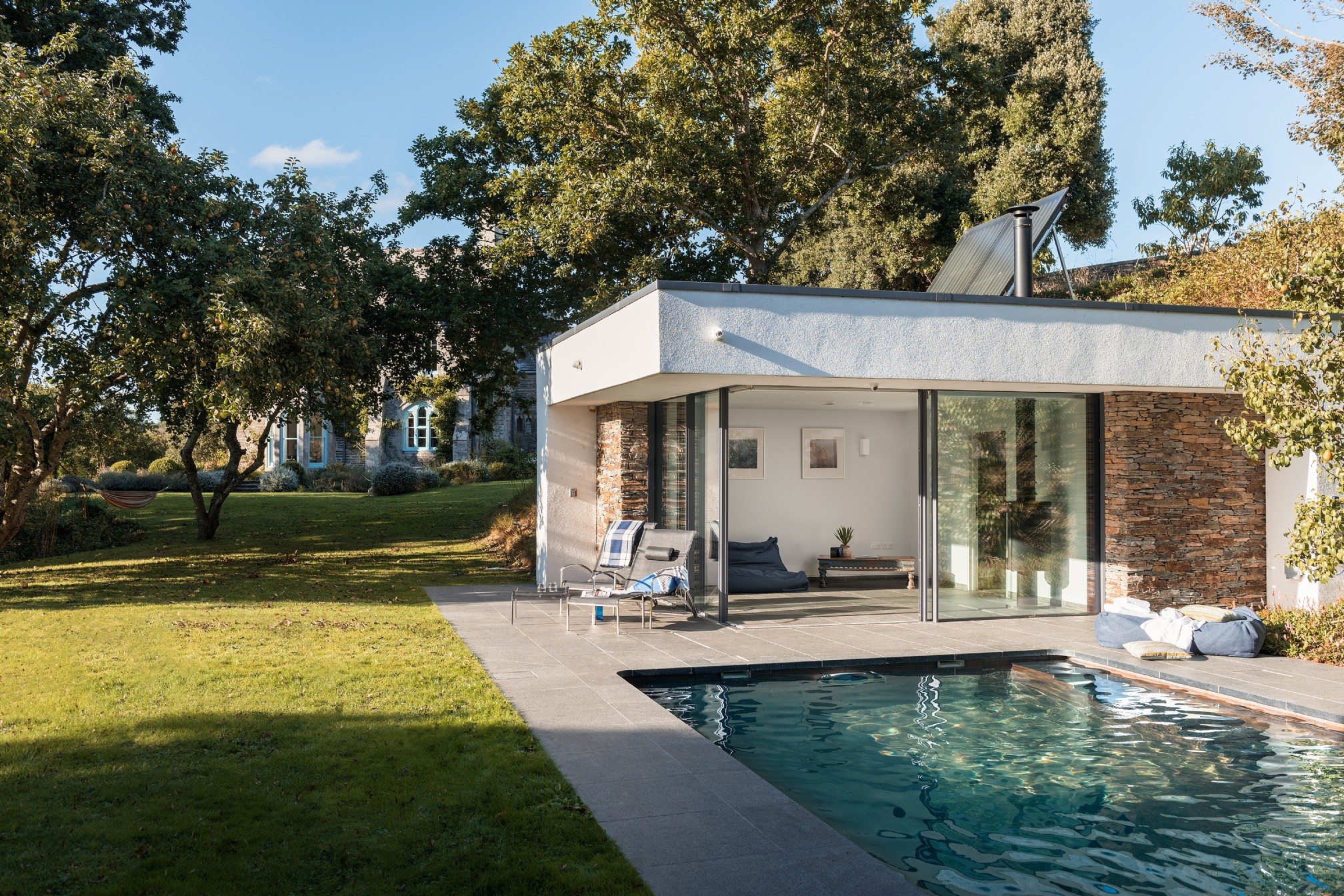

Wondering how do you build a pool in your garden has become a suprise design trend this summer.Over the past year and a half our backyards have become more important to us than ever. More and more people are investing in their outdoor spaces and thinking about pool ideas is the perfect way to transform your garden into a fun-filled paradise.
When it comes to building a pool in your garden, there are a few important factors to consider. Here’s what you need to know.
Spacing is important
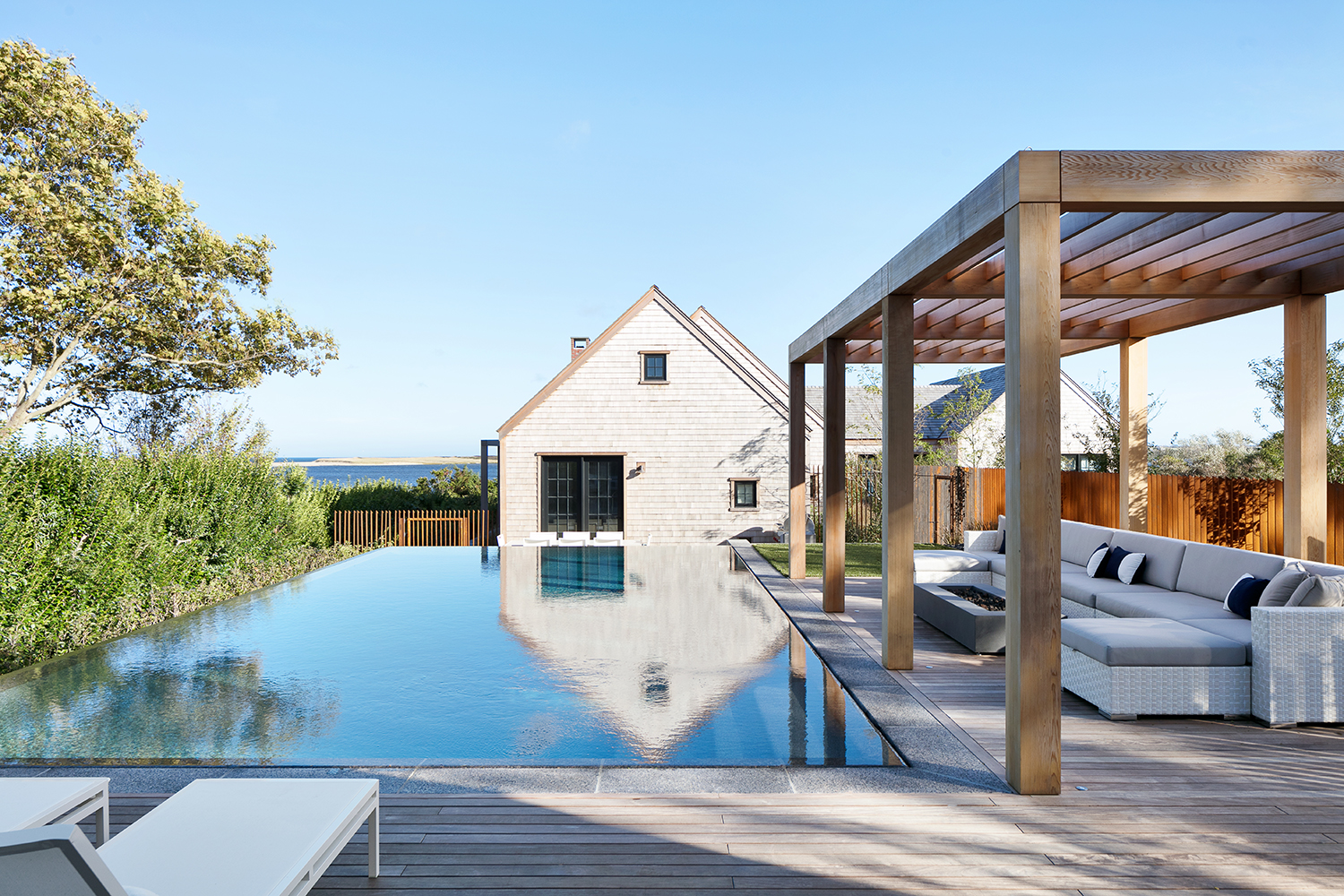
First things first - how big do you want to go - you may wish to consider small backyard pool ideas. From built-in slides to infinity pools, there are lots of designs to choose from and this will impact the size. But even with a standard outside pool, there are factors you need to bear in mind when it comes to spacing.
There needs to be enough room to house the pool, a reasonable sized pool patio and a plant room. The plant room is a vital feature in the planning process as it houses vital equipment for your pool. Therefore, you’ll need to make sure that it’s spacious enough to allow easy access for your service engineer.
You’ll also need to consider where in your garden you want your pool to be located. As a rule of thumb, it’s best to place your pool near your home in order to keep it a part of your outdoor living space and to avoid carting plates and drinks glasses back and forth from the kitchen.
There are different types of pool to consider
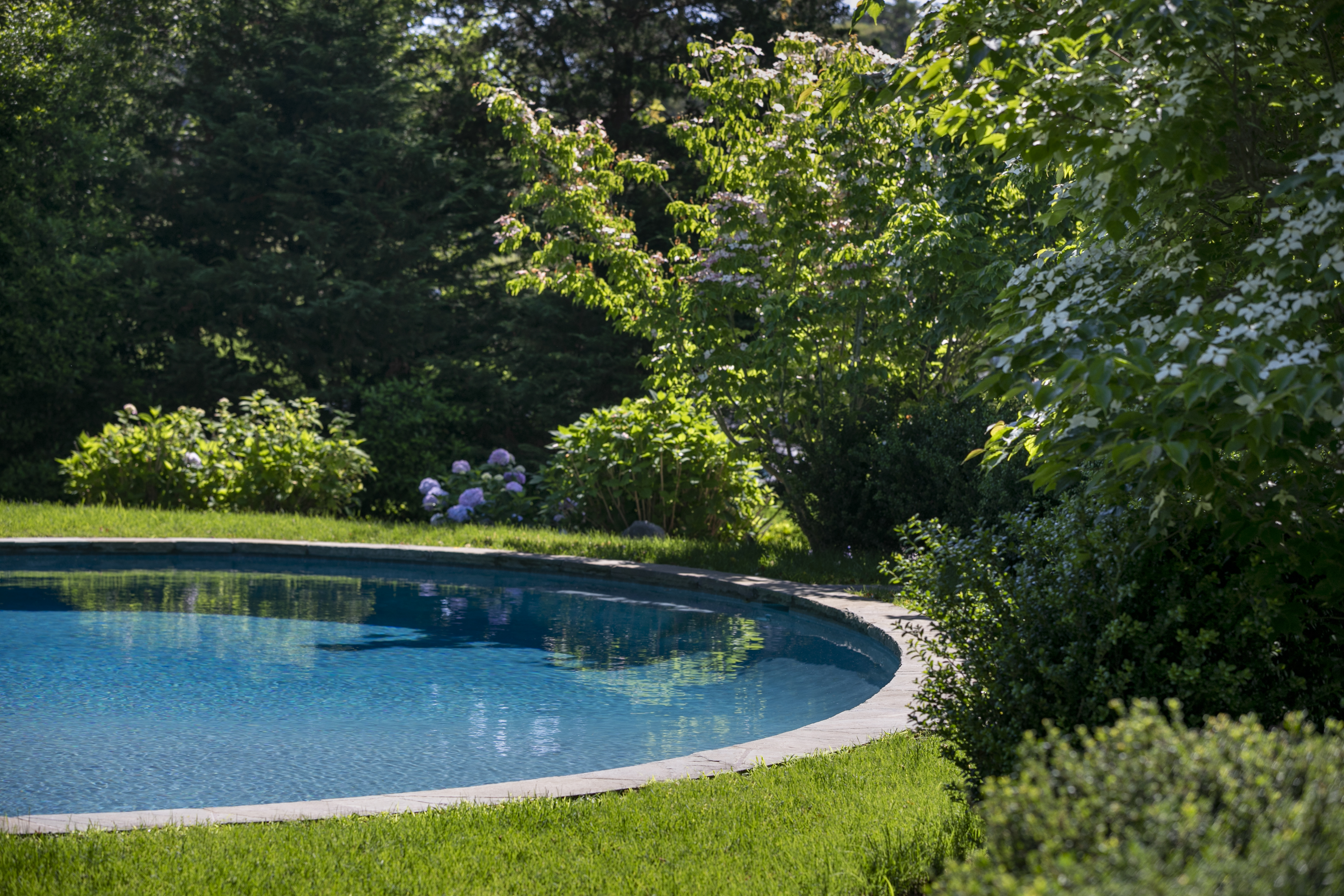
The next thing you’ll need to consider is whether you want an above-ground or an in-ground pool.
Above-ground pools are the cheaper option. They tend to be easy to put together and to remove, whereas an in-ground pool is likely to look more polished but with more factors to consider as it is dug into the soil.
Waterproofing is essential
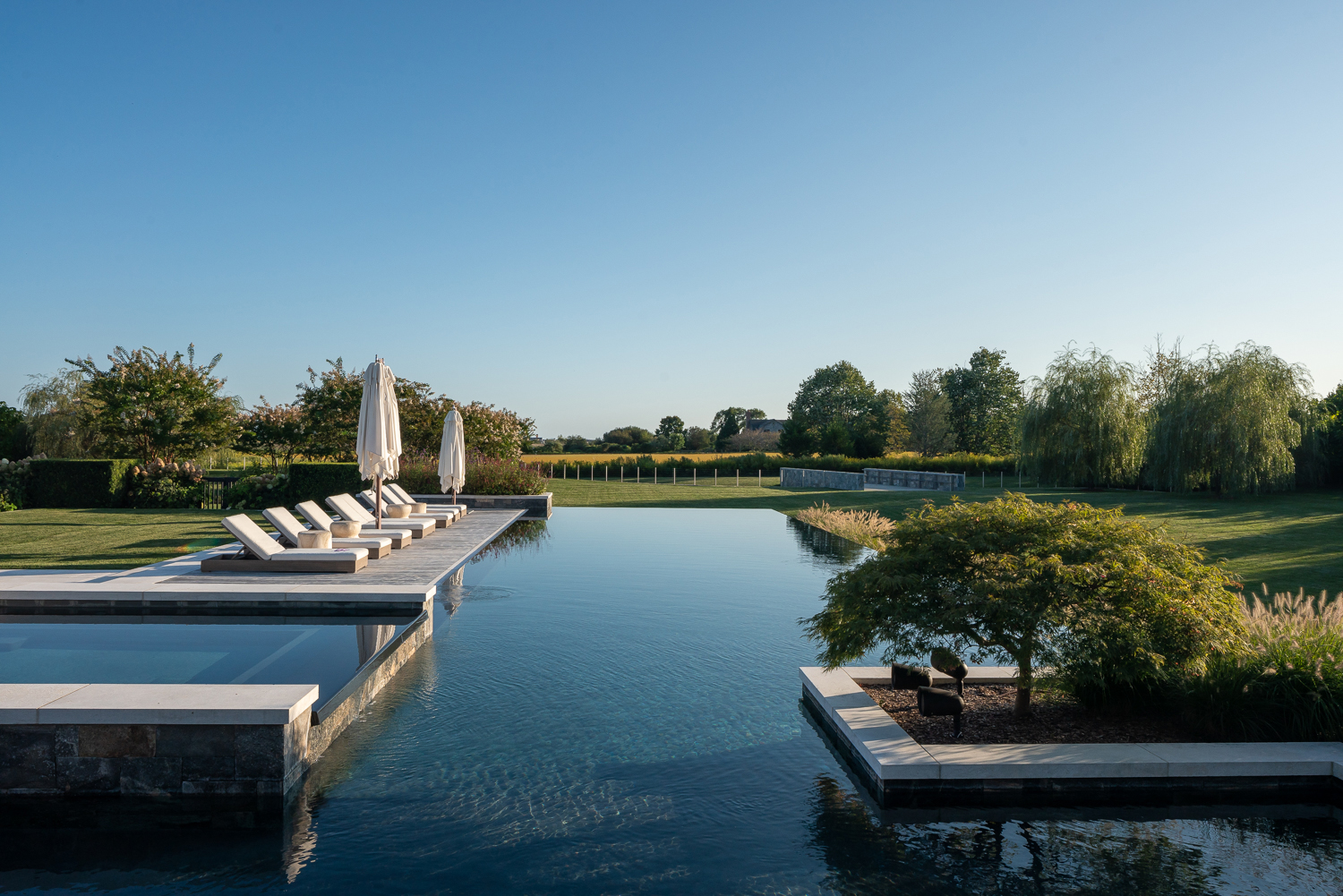
‘All swimming pools will need to be water-proofed in some shape or form using a concrete ad mix, an additive to the pool render, a waterproofing membrane or possibly a combination of all three depending on the pool,’ says Jamie Smith, Managing Director of London Swimming Pool Company.
‘By having a good waterproofing regime it will ensure that a pool remains watertight for the entirety of its life. Remember though that water coming in from the outside of the pool can also be an issue and sufficient drainage should be installed if ground water is likely to be an issue to prevent issues later on,’ adds Smith.
Pool finishes make a difference
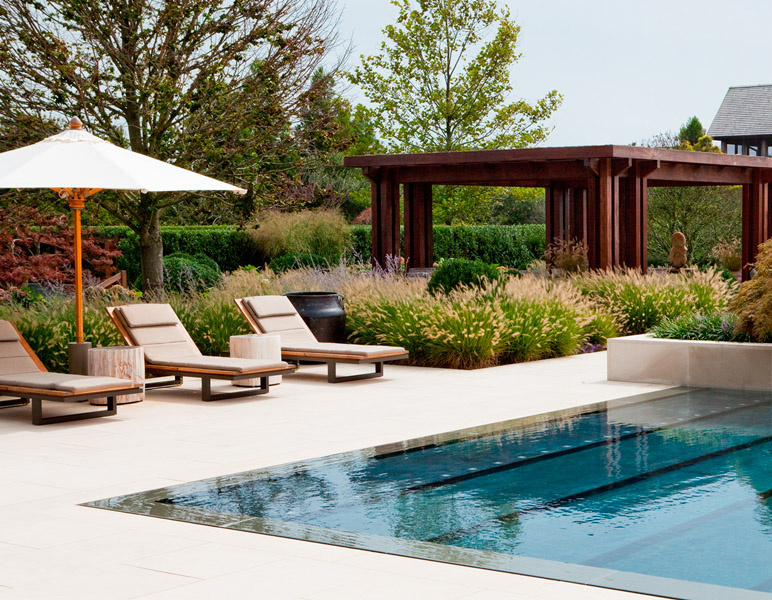
Choosing the right pool finish is key to getting your desired look. Whether you want a calming oasis or a pool fit for parties, the type of finish you choose will ensure your pool is both functional and stylish.
‘There are pool finishes for every type of pool and budget, from sleek stainless-steel pool finishes at the top of the scale through to attractive vinyl liners, which are less expensive, and come in an array of colours and designs,’ says Smith.
Here are some popular interior finishes to choose from.
Tile finish
This versatile finish is the most popular when it comes to pool interiors and comes in a range of materials including ceramic, porcelain, glass and stone. These hard wearing tiles can come in many different colours, shapes and sizes.
Stainless steel
If you’re going for a contemporary look then perhaps you should consider stainless steel. Easy to maintain, service and modify, stainless steel finishes can be constructed faster than other pool types and are also lighter in weight.
Natural Stone
Smooth or natural stone is another good option if you want your pool to tie in with the rest of your outdoor decor. You will have to make sure that the stone can withstand being continually immersed in water, so speak to your pool designer to make sure you choose the right material.
It’s also important to note that while It’s unlikely that you’ll need planning permission for an outdoor pool, it’s always a good idea to check with your local council.
Heating is essential to pool operation
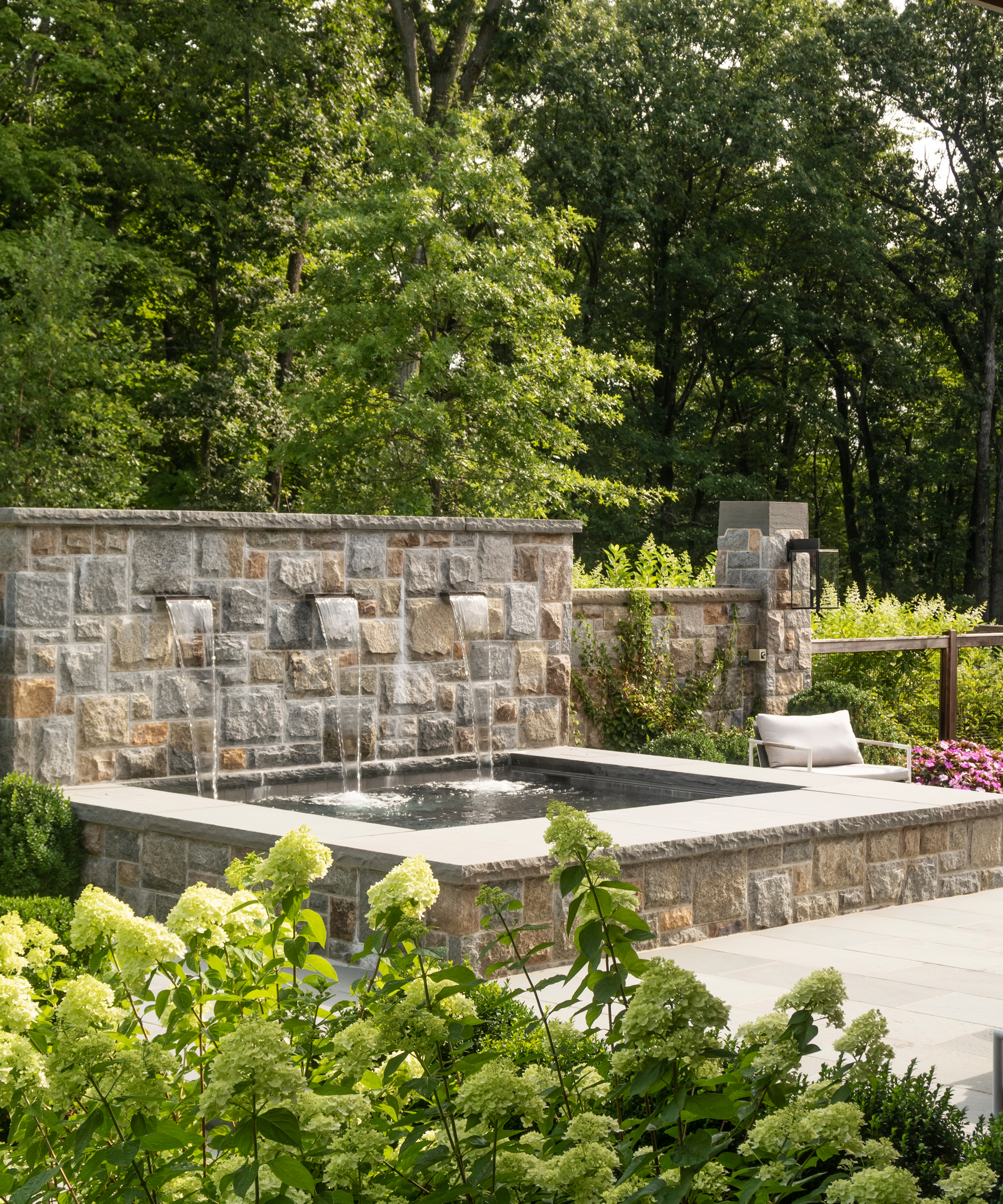
The temperature of your pool can affect how well it functions including its hygiene and water clarity. Luckily, heating a pool is fairly straightforward. Here are some of your options when it comes to keeping your pool heated.
Heat Pumps are an environmentally efficient option that are relatively cheap to operate and suited to outdoor pools. Heat pumps that use a direct unit are more efficient than those which use an indirect unit as the latter relies on heat exchangers to warm the water.
Solar panels are another affordable option and are eco-friendly. They require panels around 50 per cent of the pool’s surface area and so initial costs can be high.
Gas and oil boilers are a popular way of heating pools. Gas boilers tend to have lower running costs than oil boilers which are more effective heaters.
The best way to determine which heating method is right for your pool is to speak to your pool designer, who can also advise you on how to clean a pool.
Be The First To Know
The Livingetc newsletters are your inside source for what’s shaping interiors now - and what’s next. Discover trend forecasts, smart style ideas, and curated shopping inspiration that brings design to life. Subscribe today and stay ahead of the curve.

Nicky Morris is a freelance journalist specialising in interiors and design. Covering everything from staircase lighting ideas to Ikea hacks to outdoor kitchens to tips for hiding radiators, she writes for Livingetc and Homes & Gardens and has previously written for Tempus Magazine. She also covers TV writing, and has written for Hello! magazine.
-
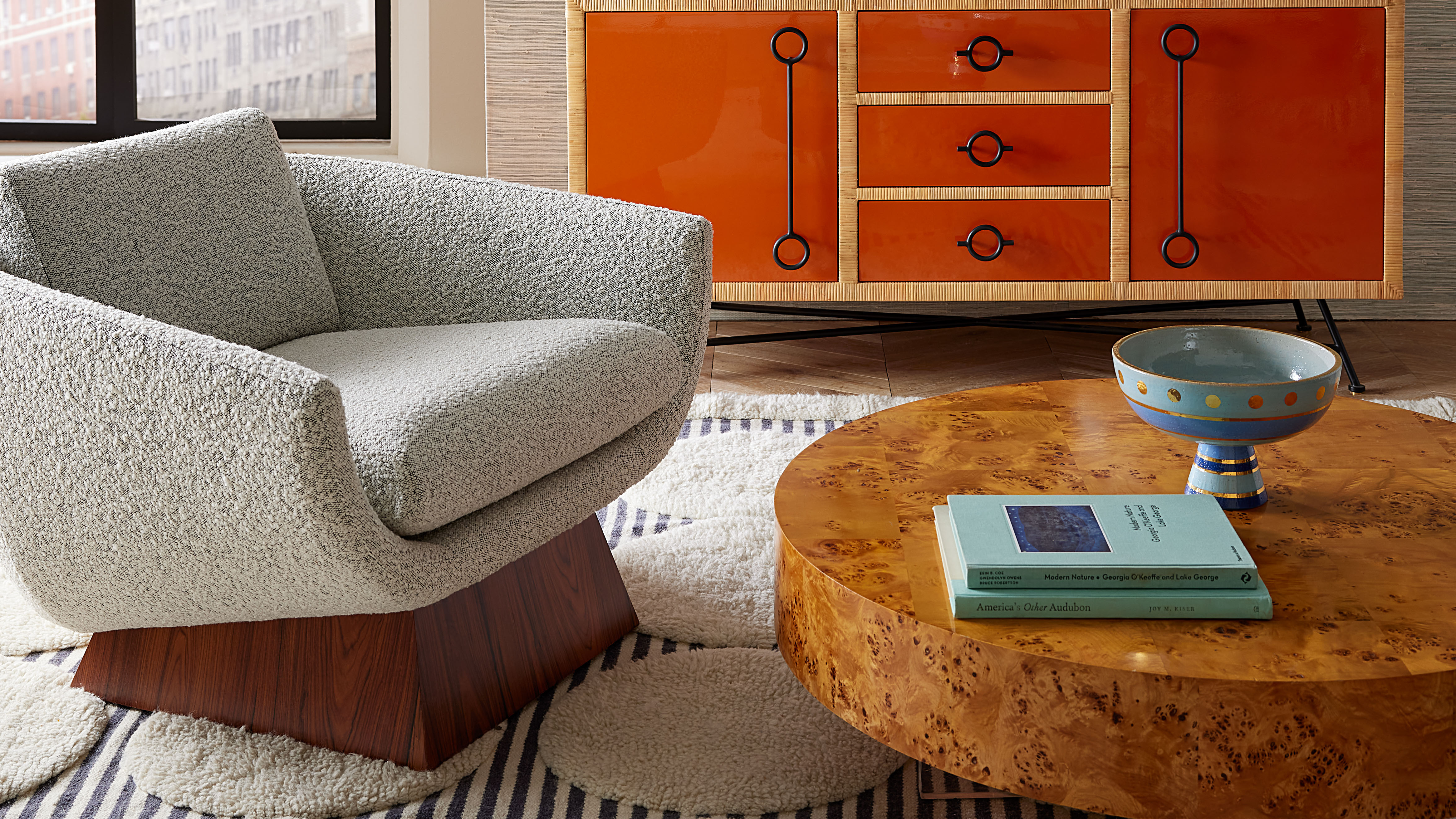 Burl Wood Decor Is 2025’s Most Coveted Comeback — Here’s How to Get the Storied Swirls for Less
Burl Wood Decor Is 2025’s Most Coveted Comeback — Here’s How to Get the Storied Swirls for LessIrregularity is the ultimate luxury, but you don’t need an antiques dealer to find it
By Julia Demer Published
-
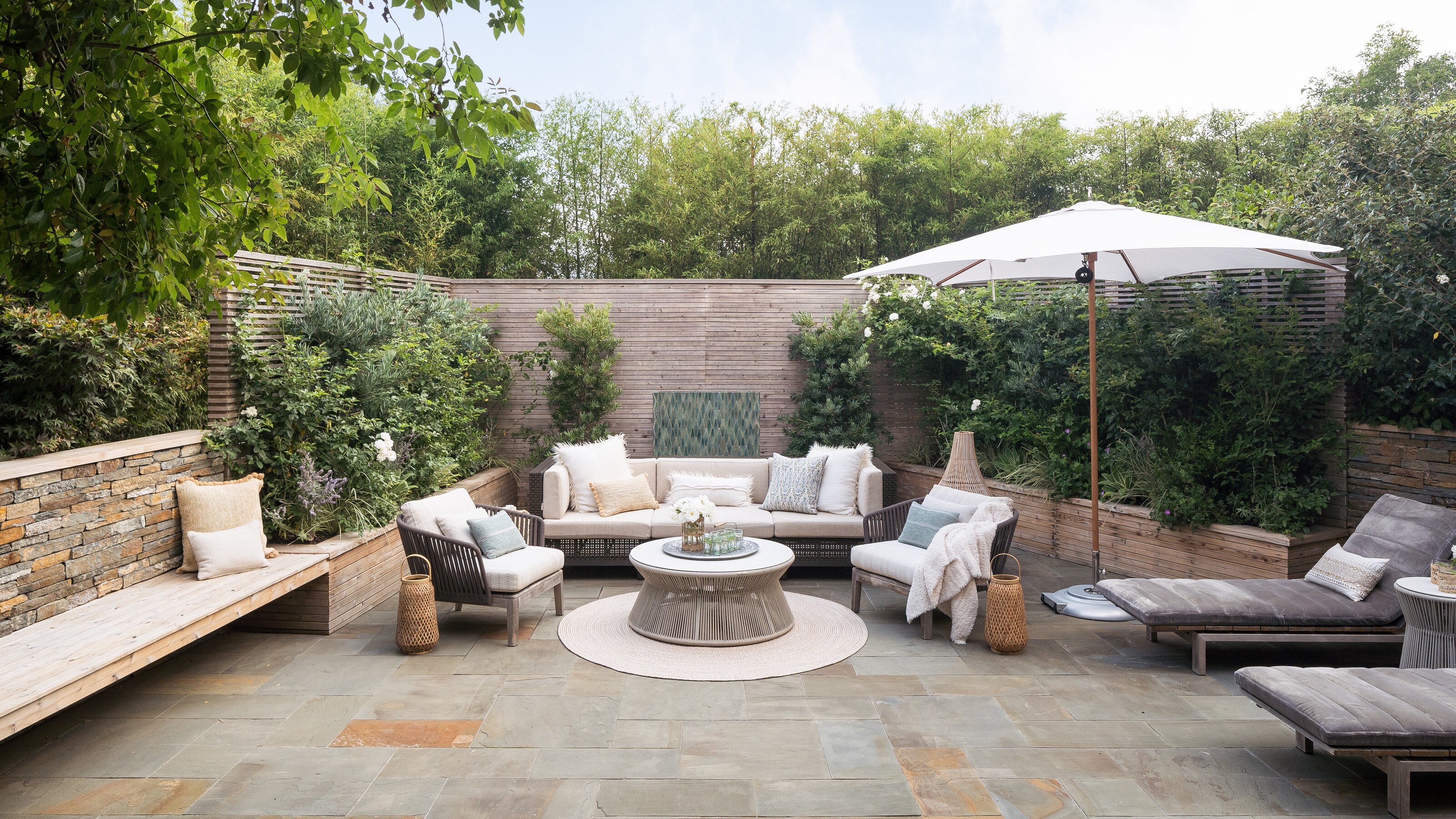 5 Garden Features That Instantly Add Value to Your Home — While Making Your Outdoor Space More Practical, too
5 Garden Features That Instantly Add Value to Your Home — While Making Your Outdoor Space More Practical, tooGet to know all the expert tips and tricks for making your backyard a standout selling point for your home.
By Maya Glantz Published